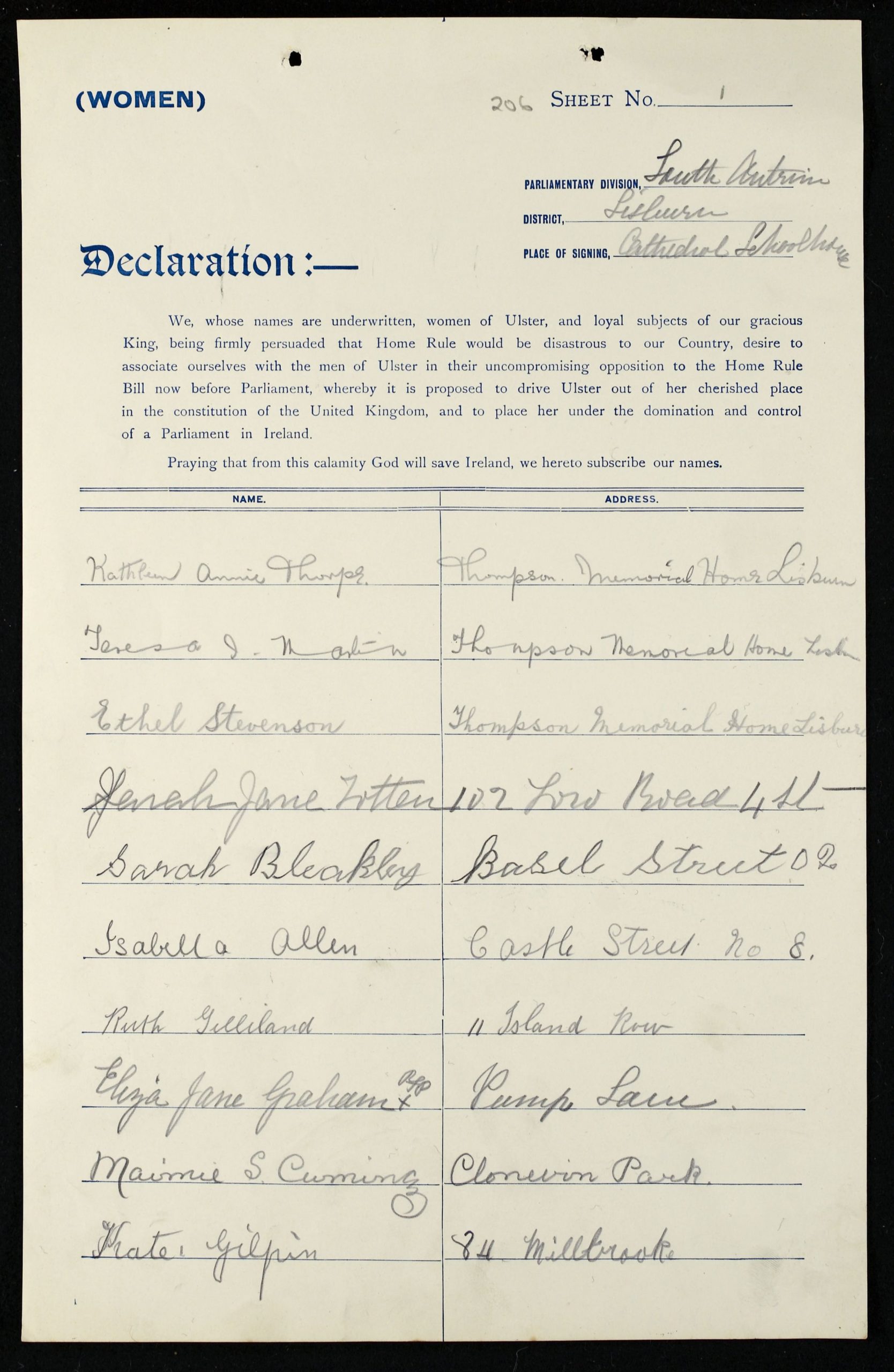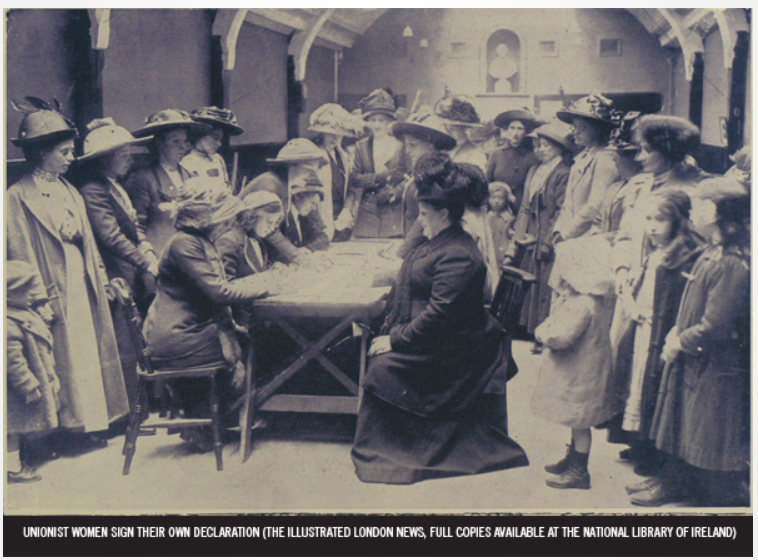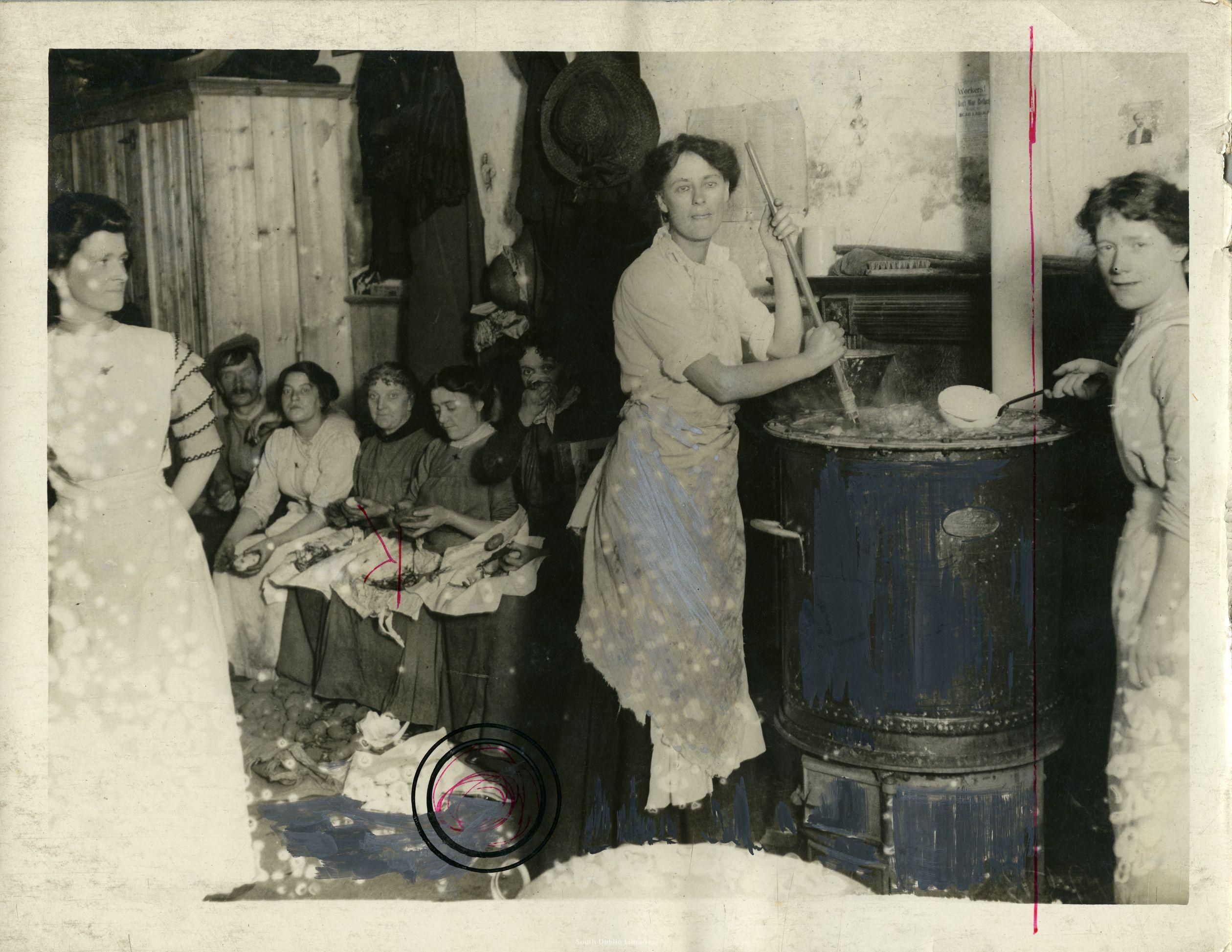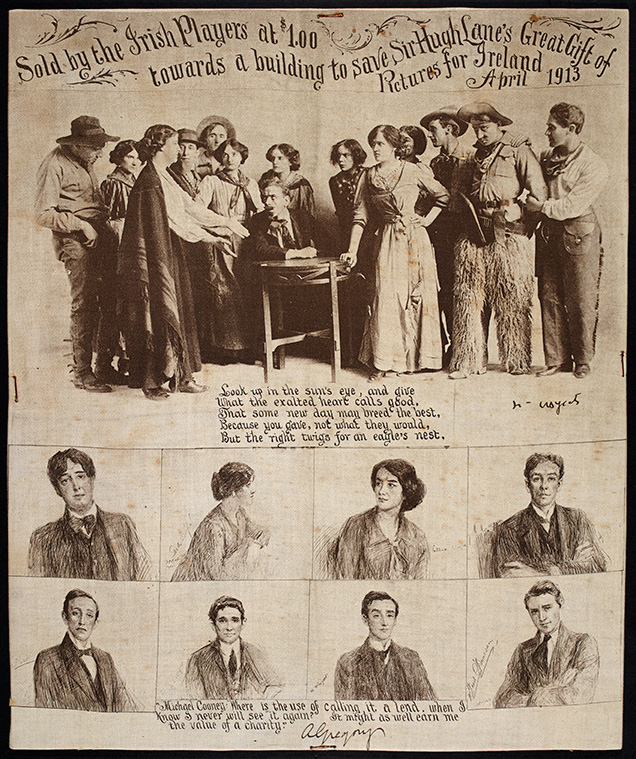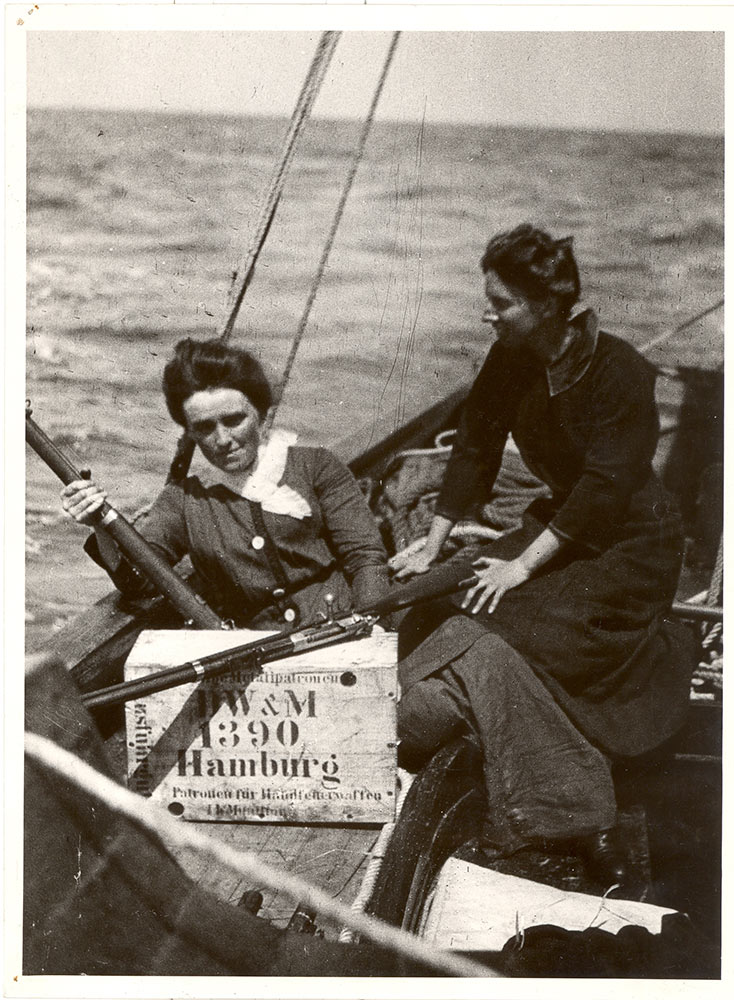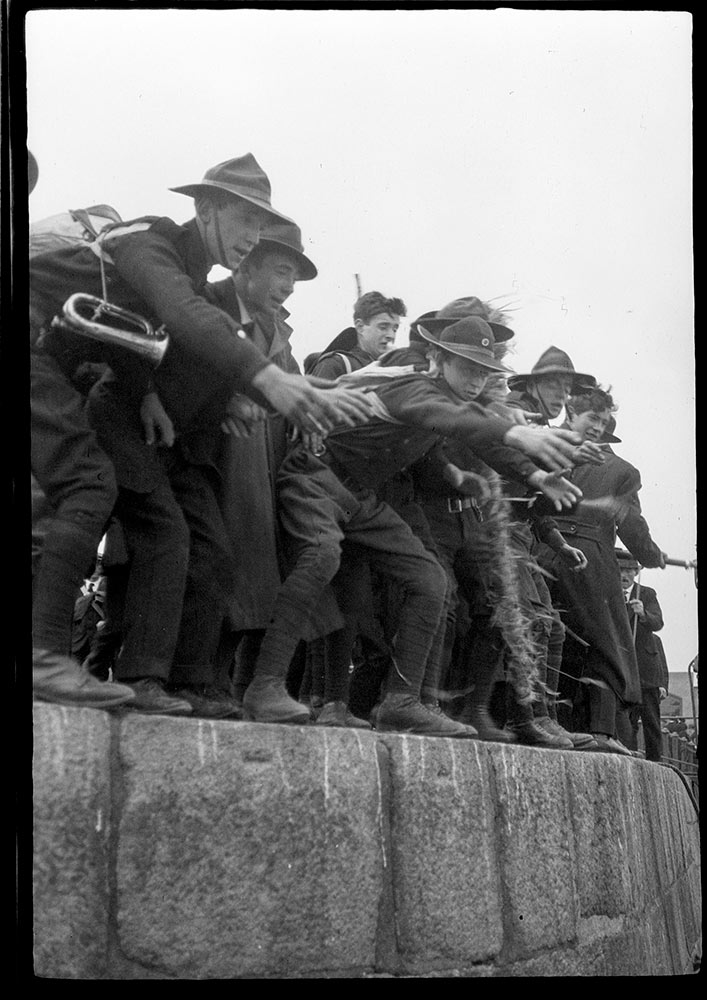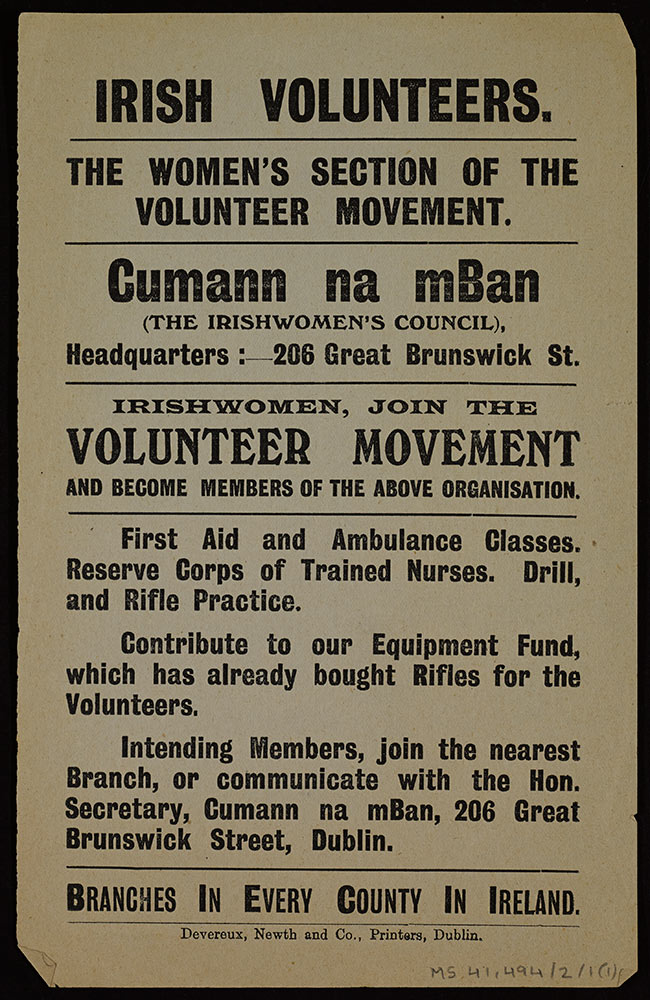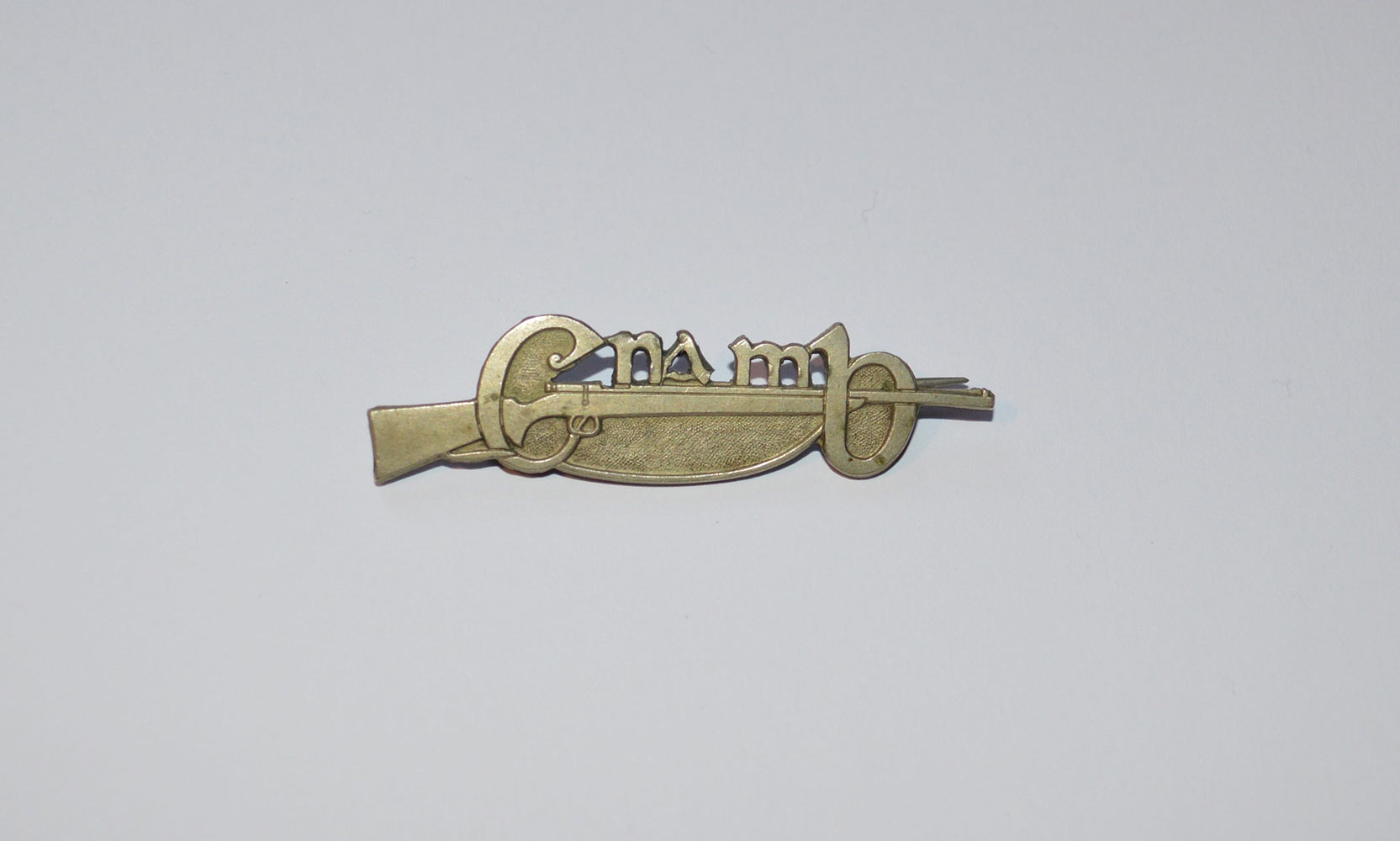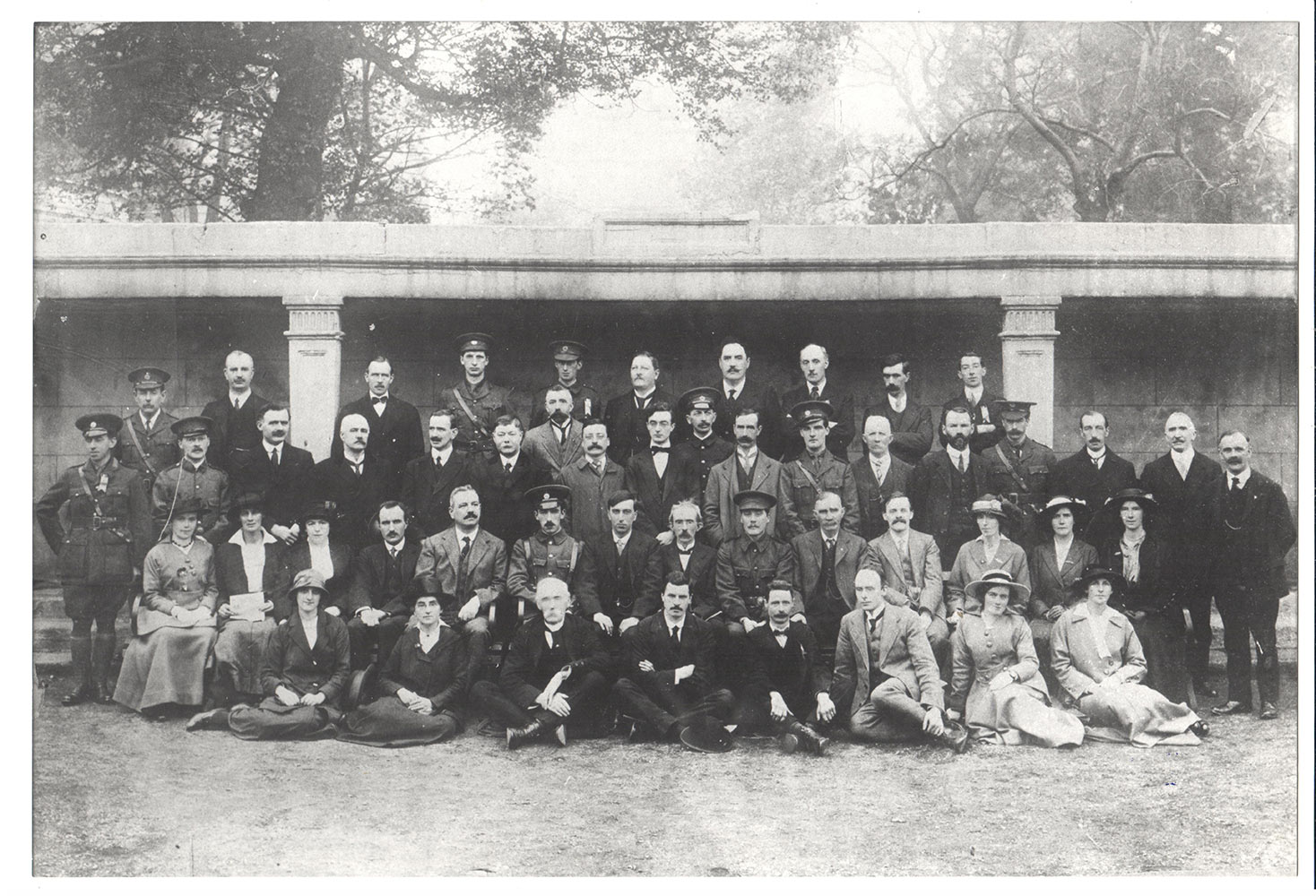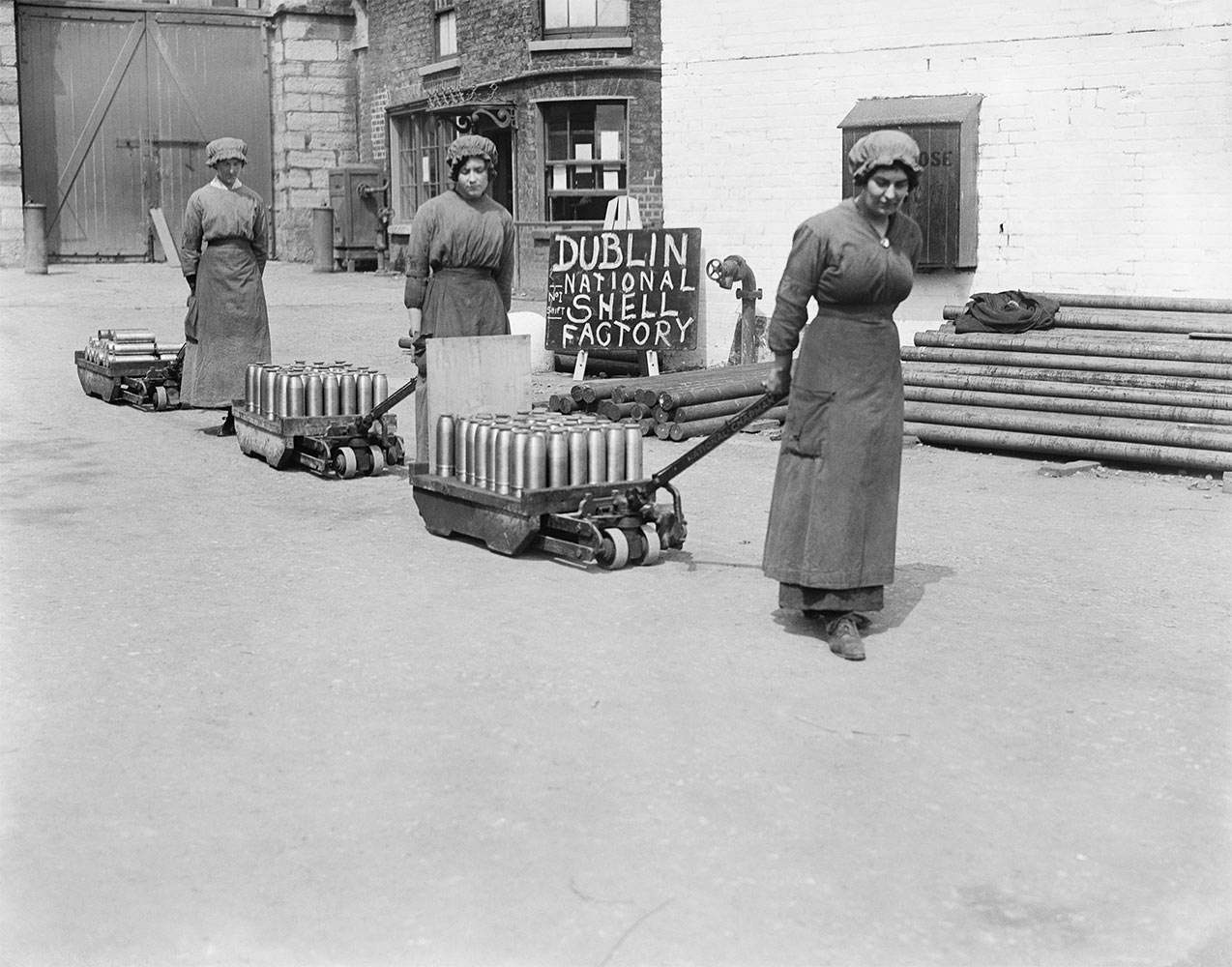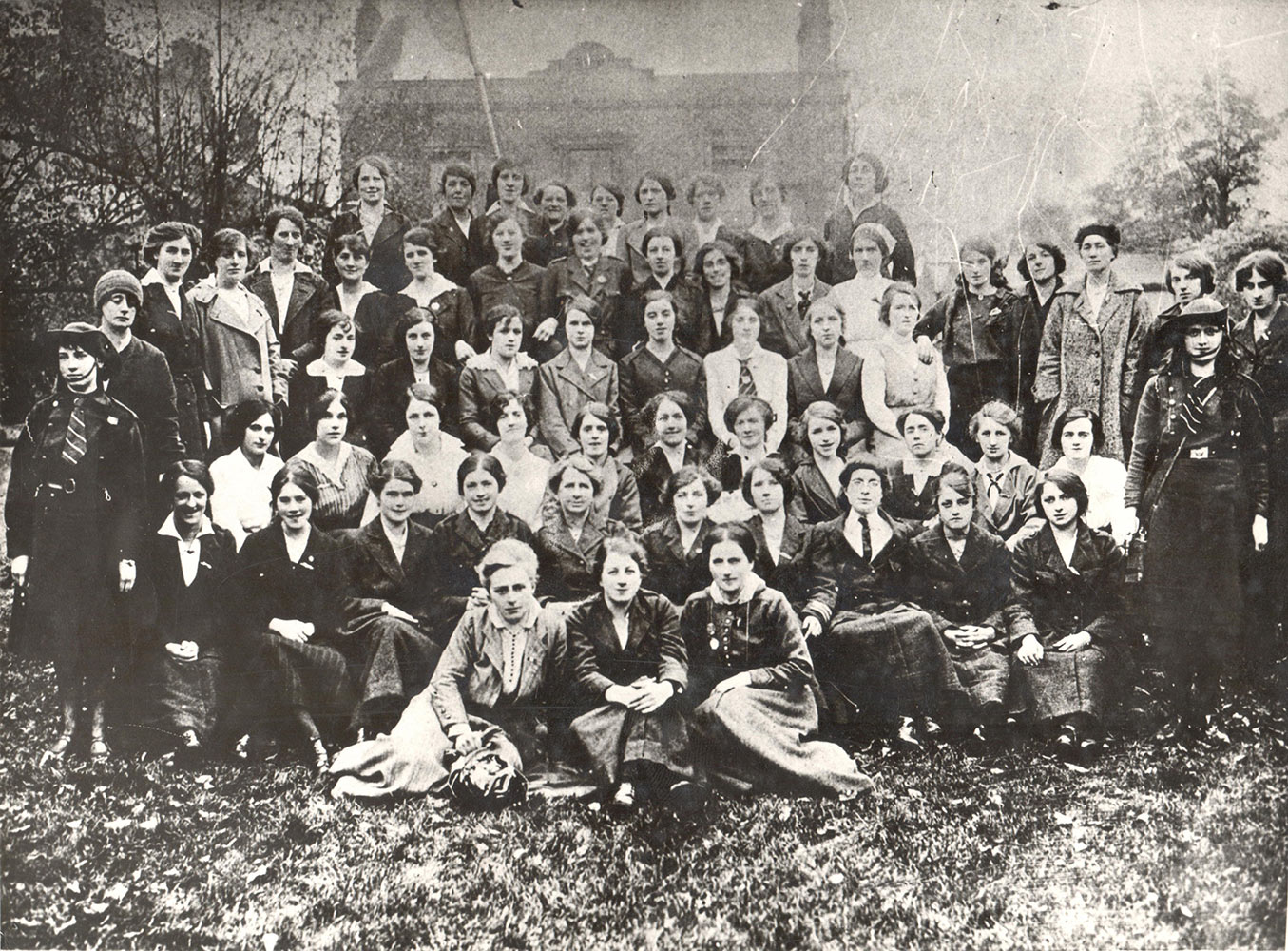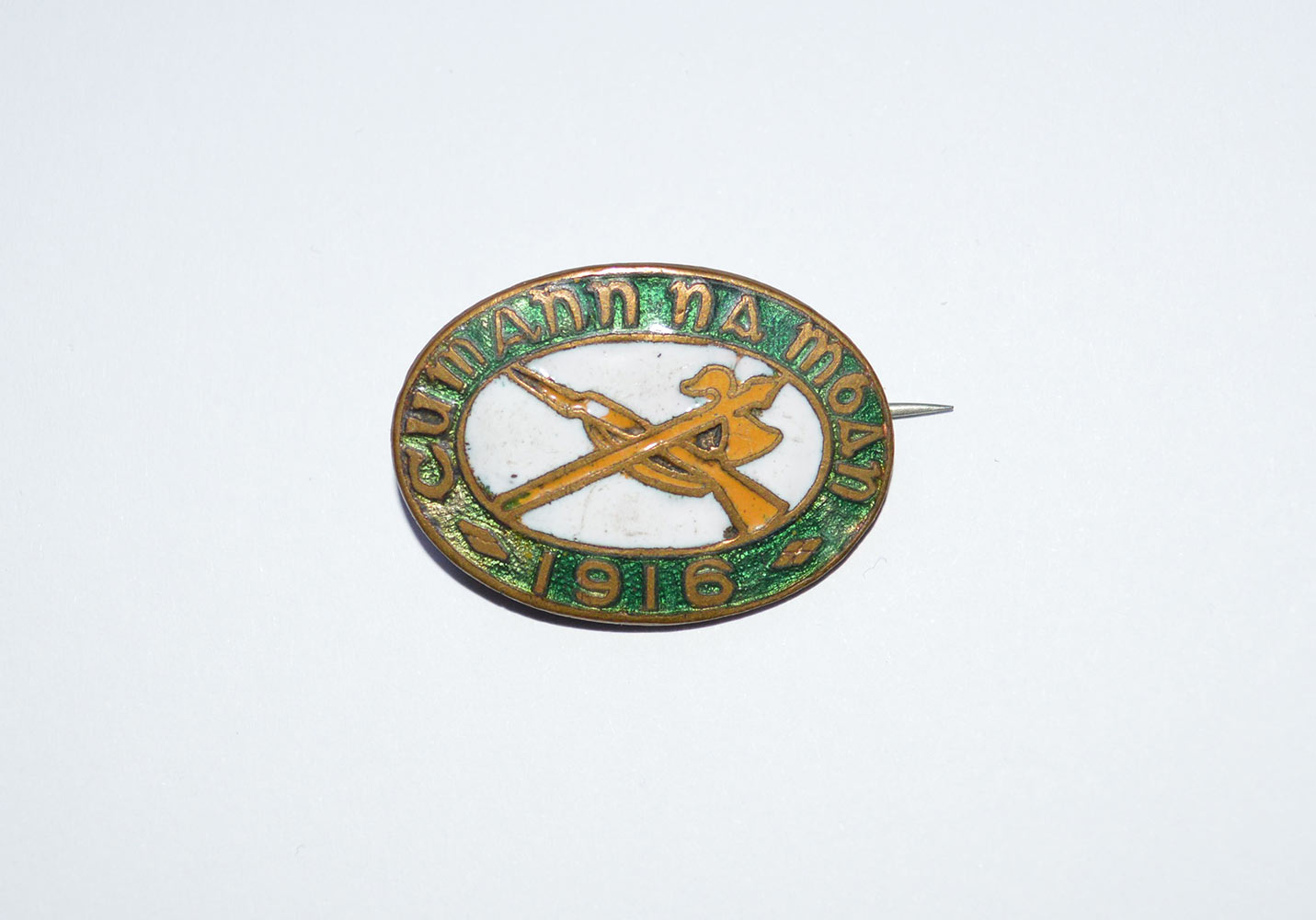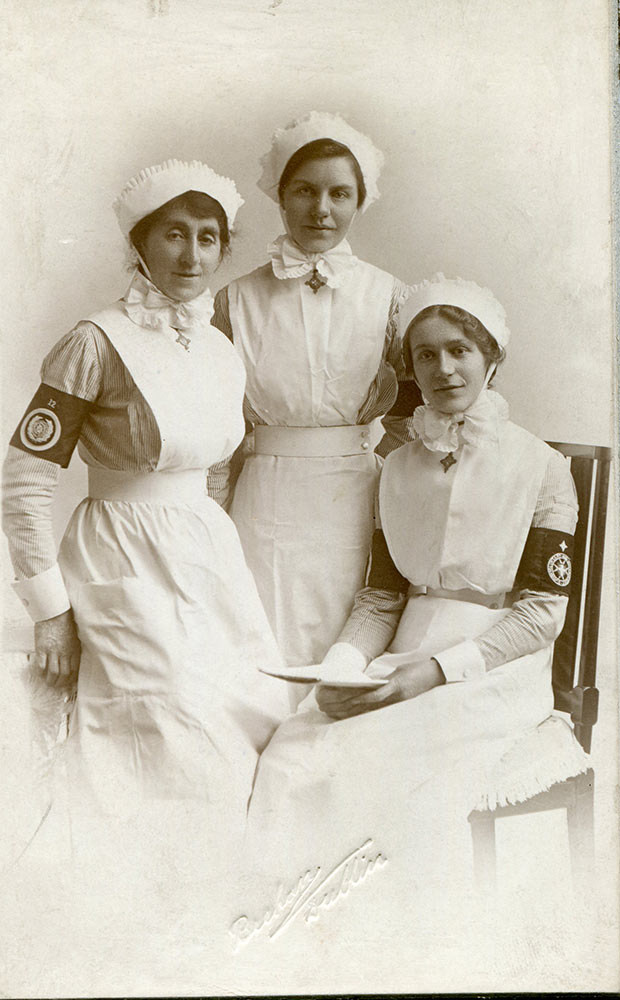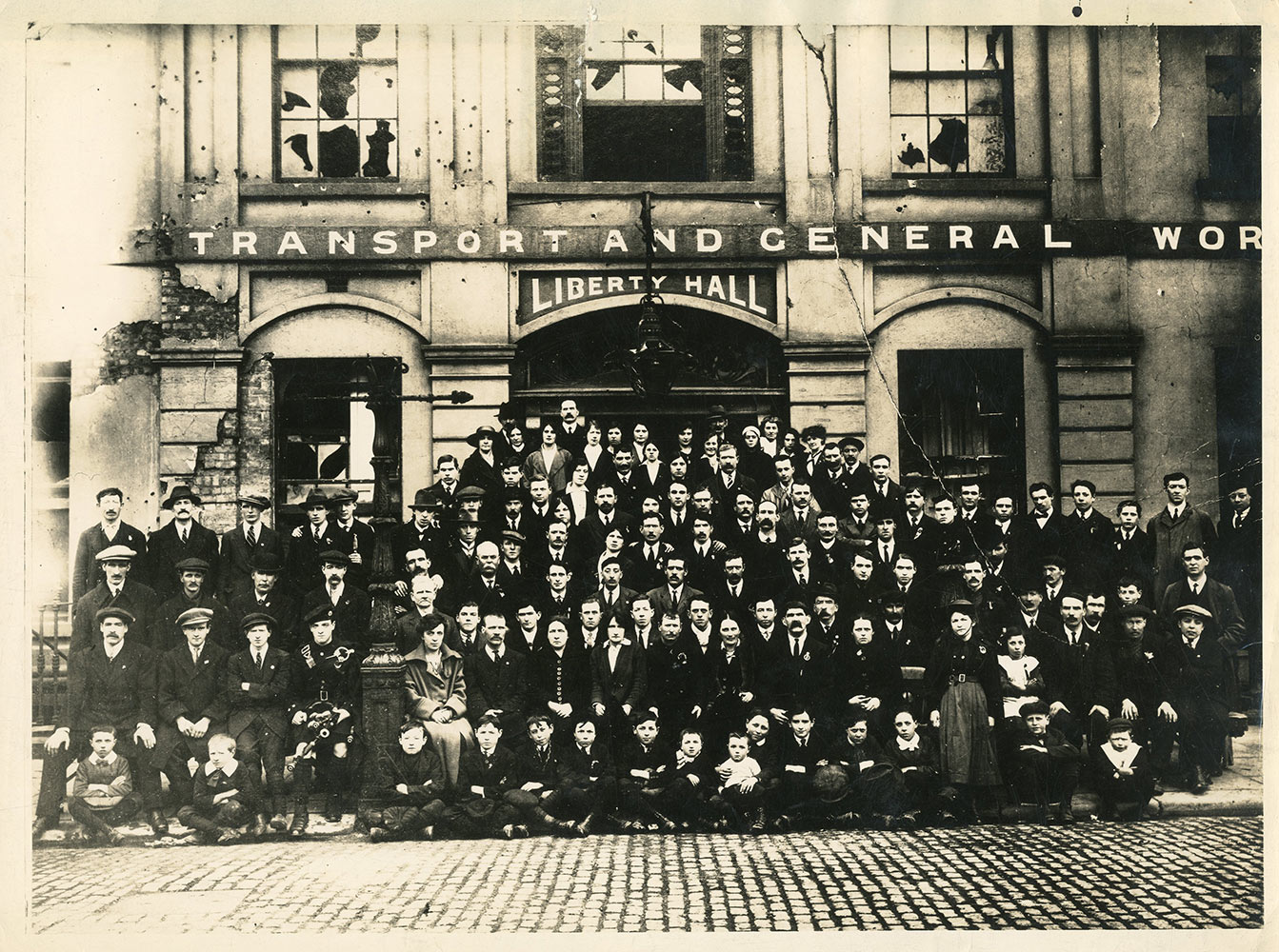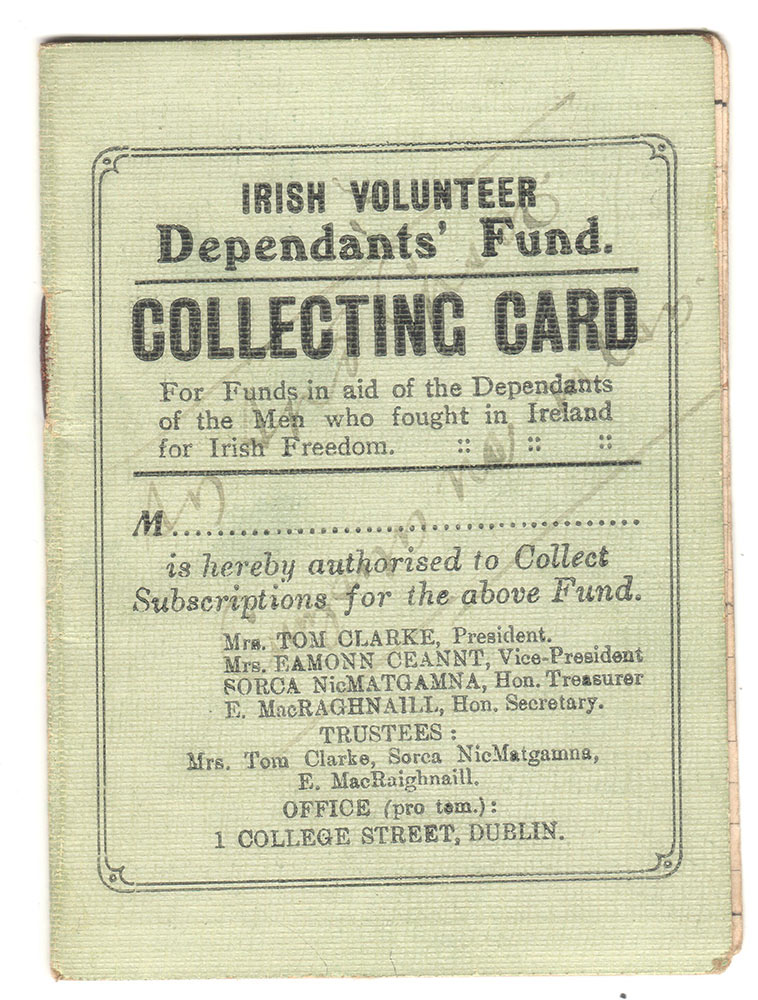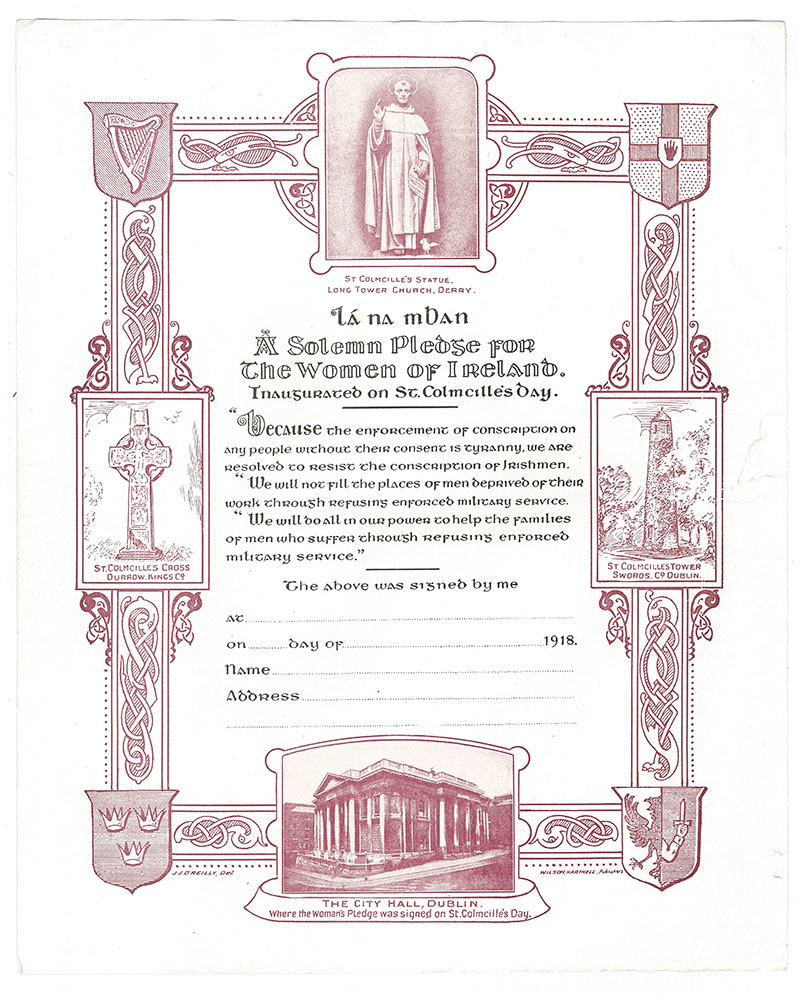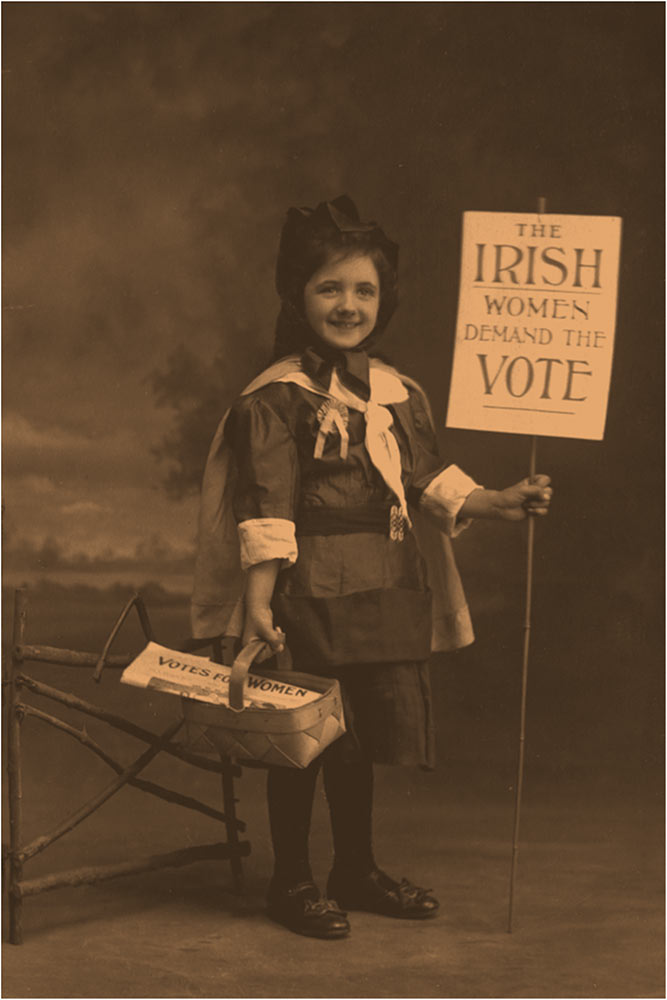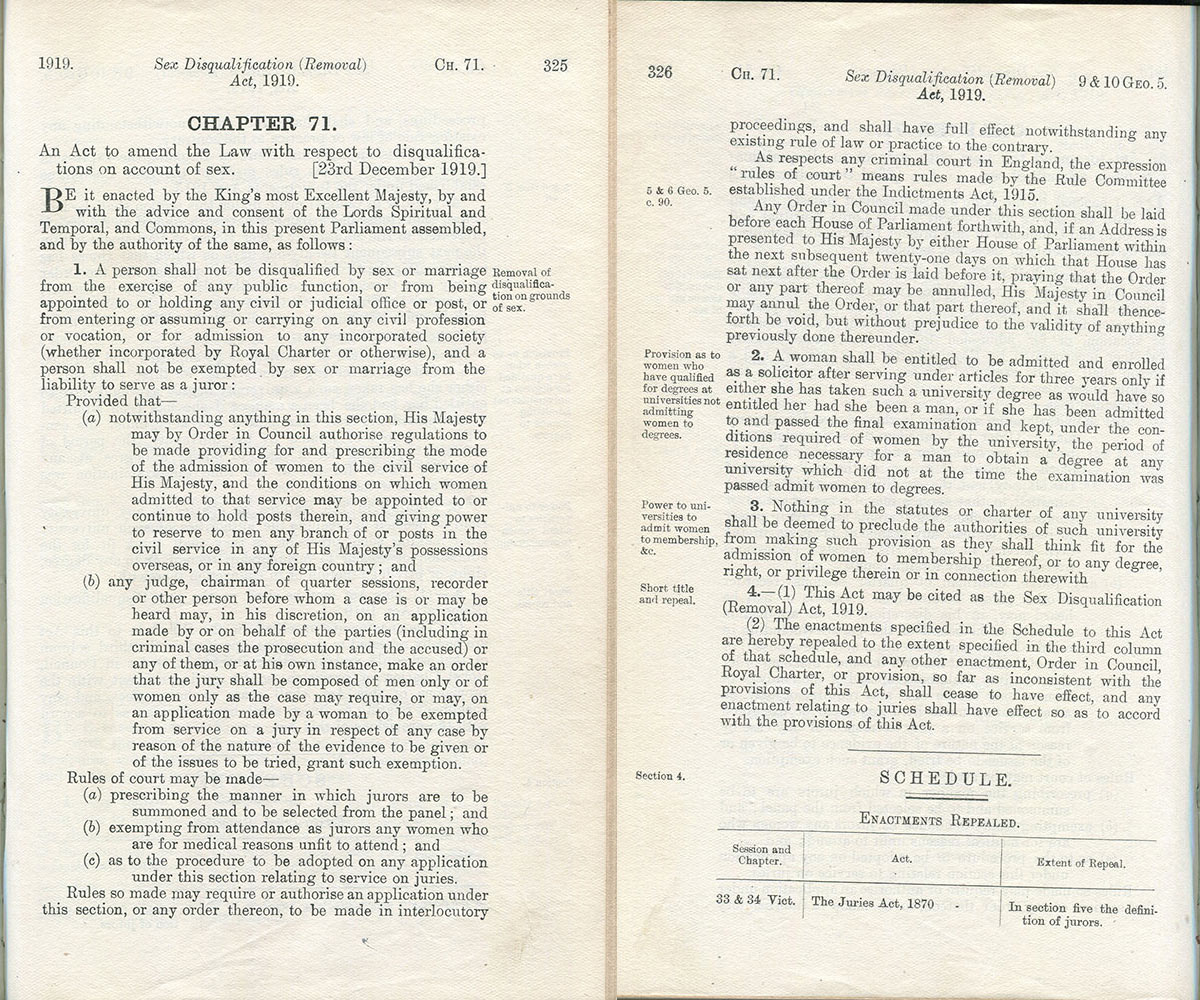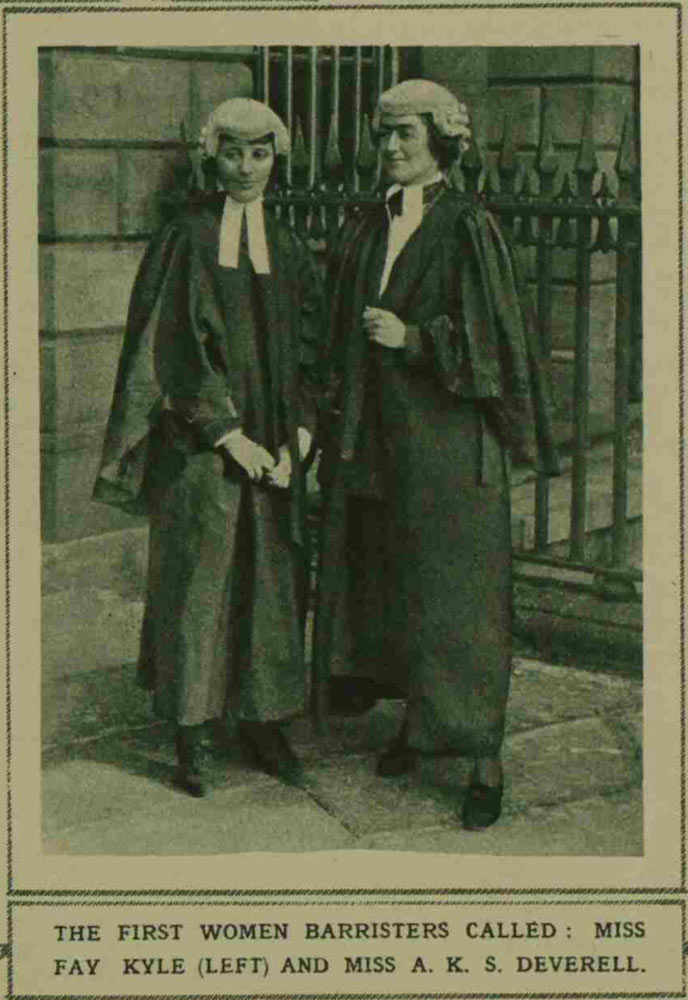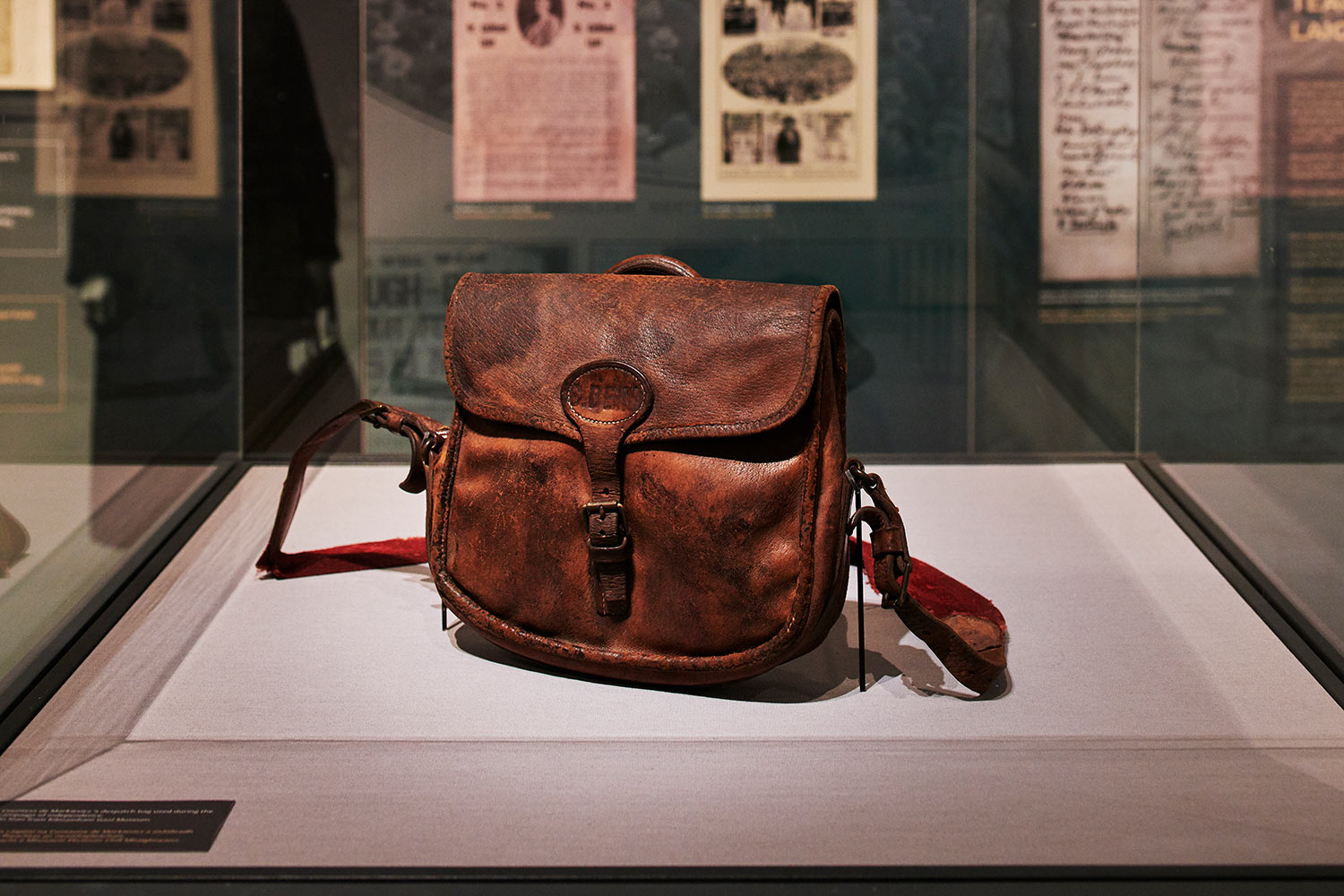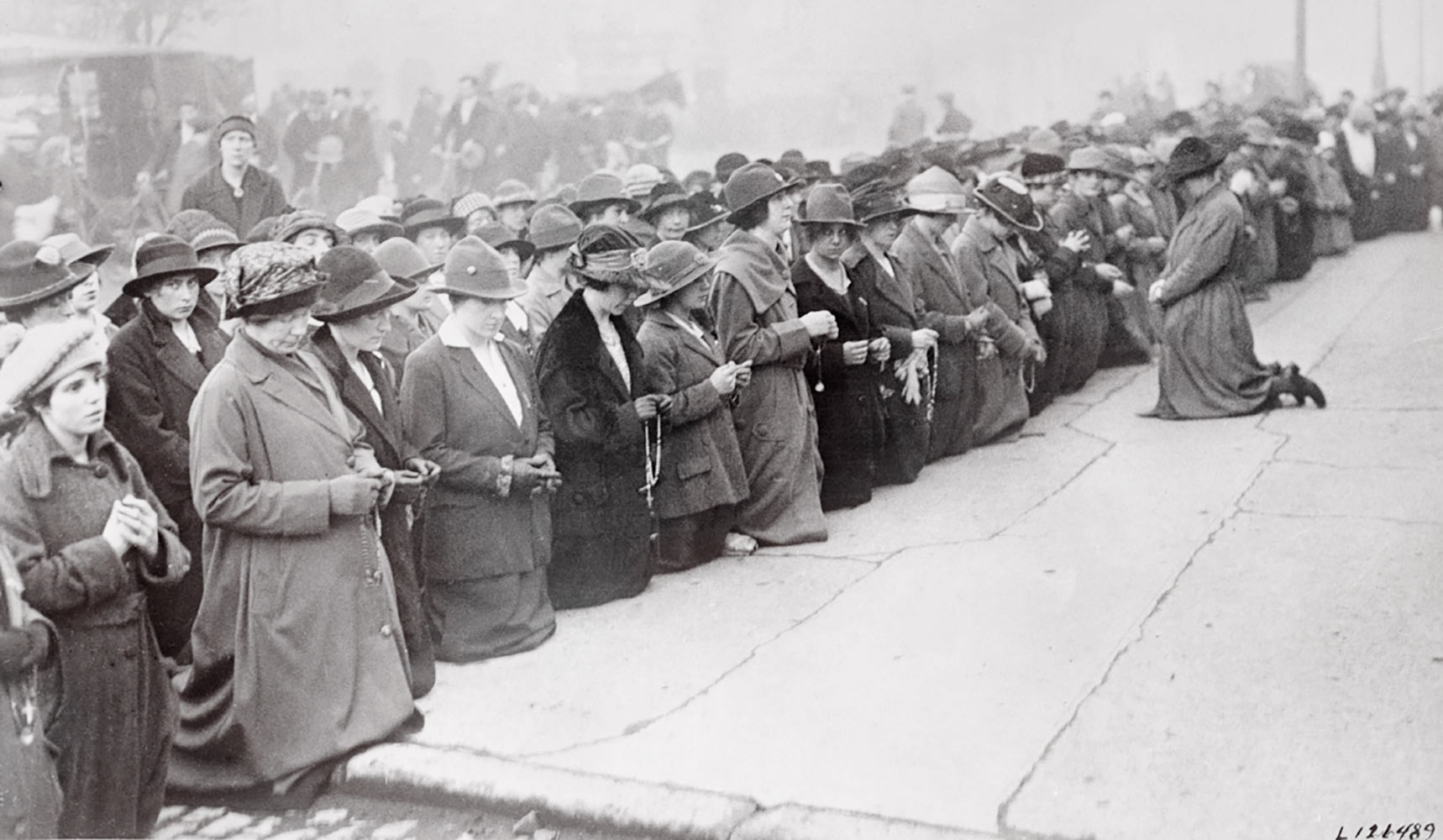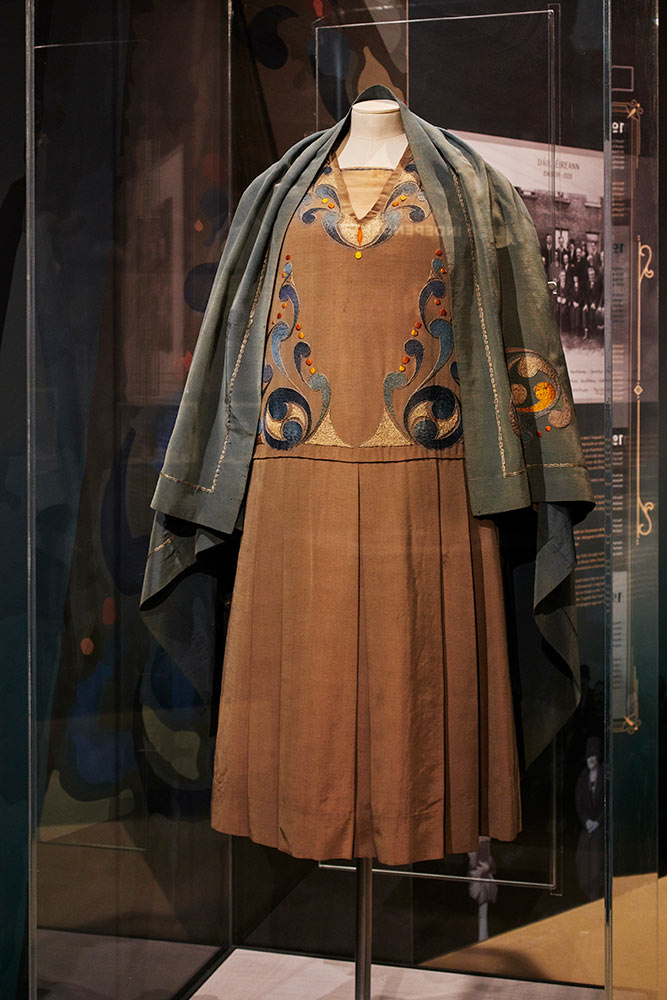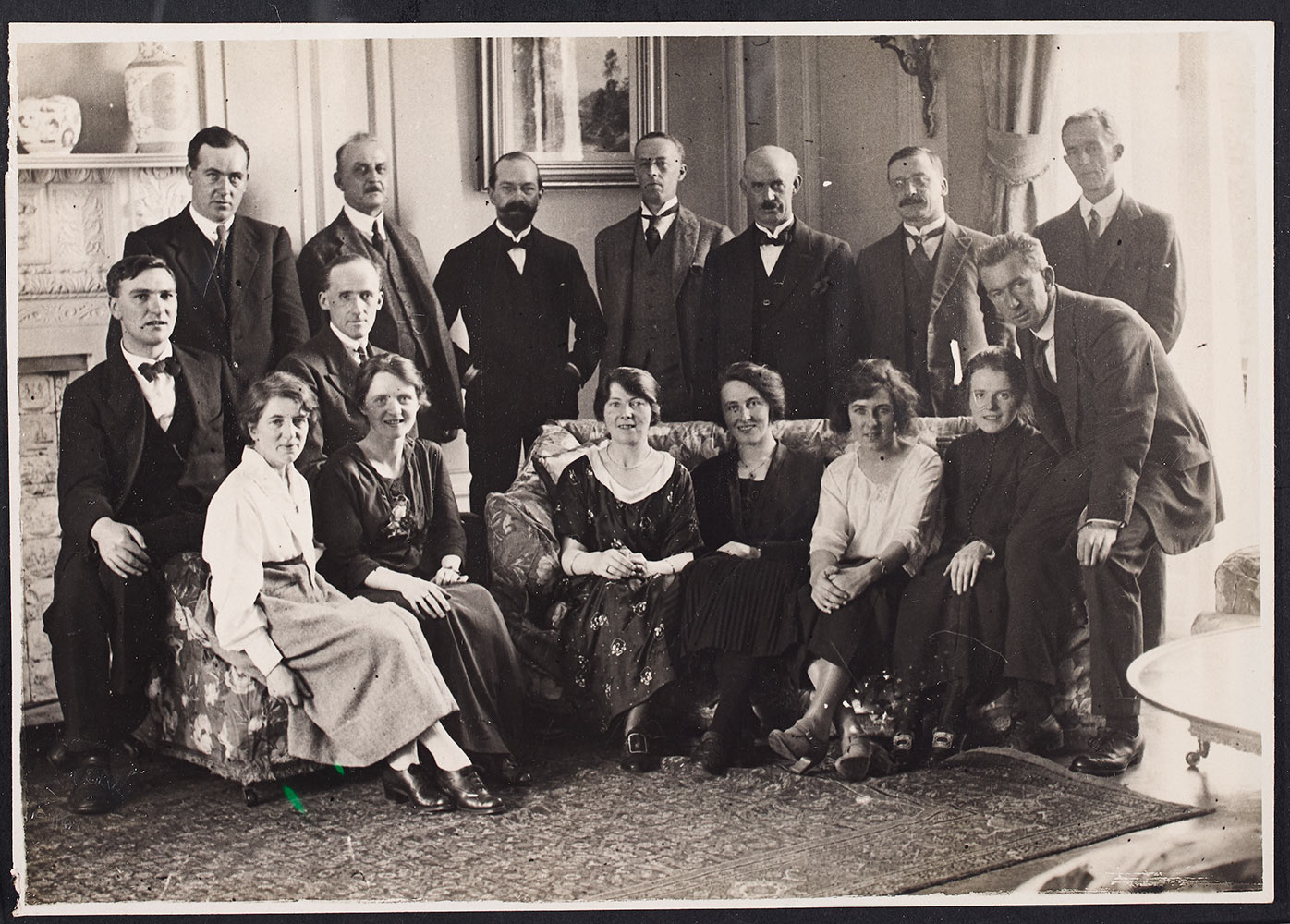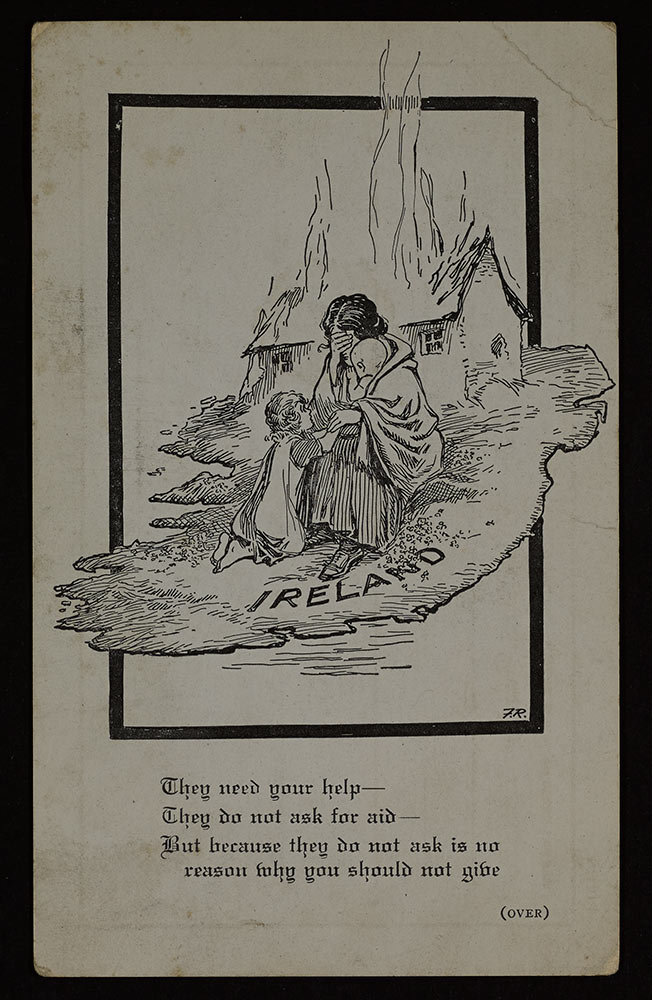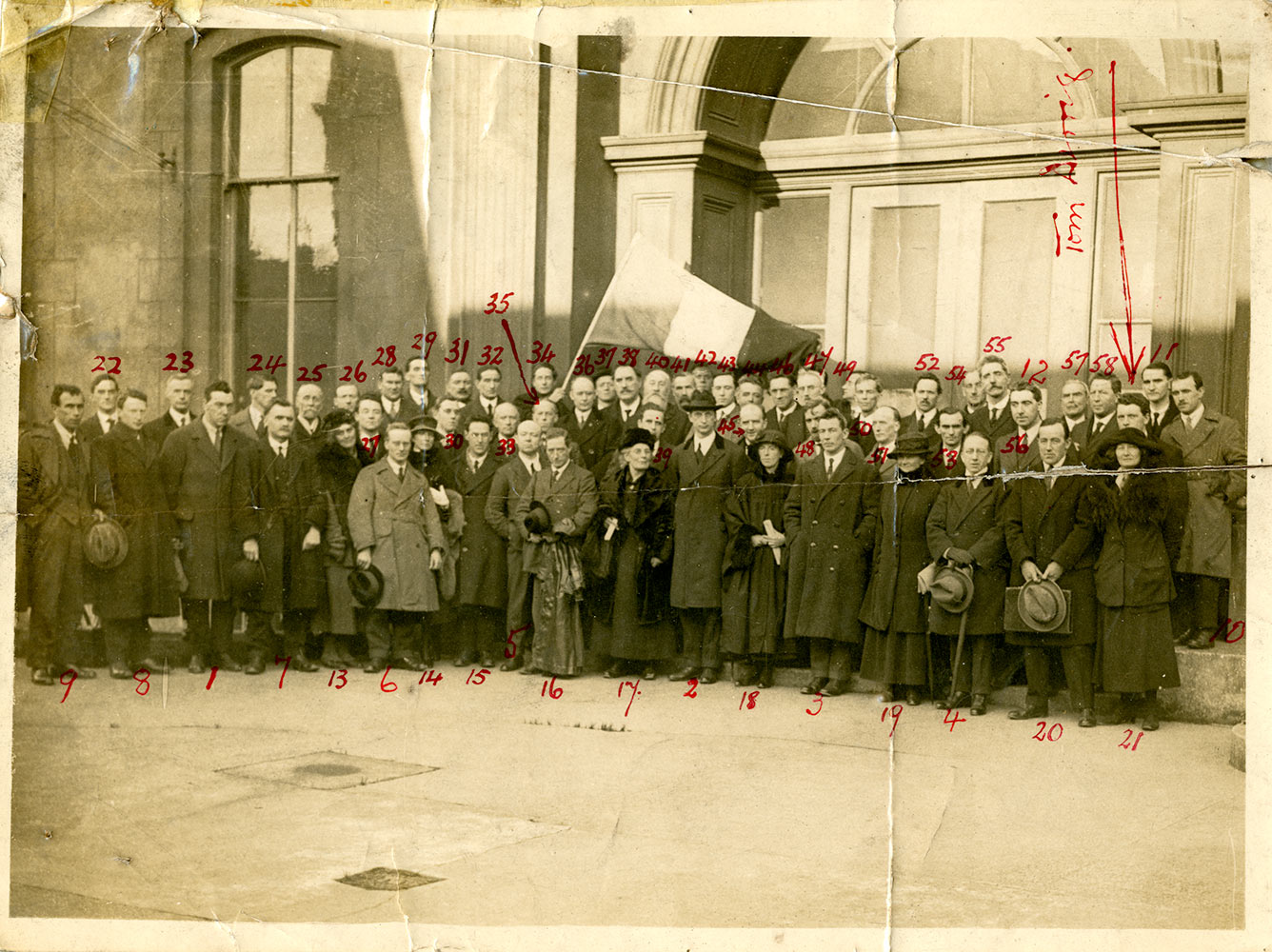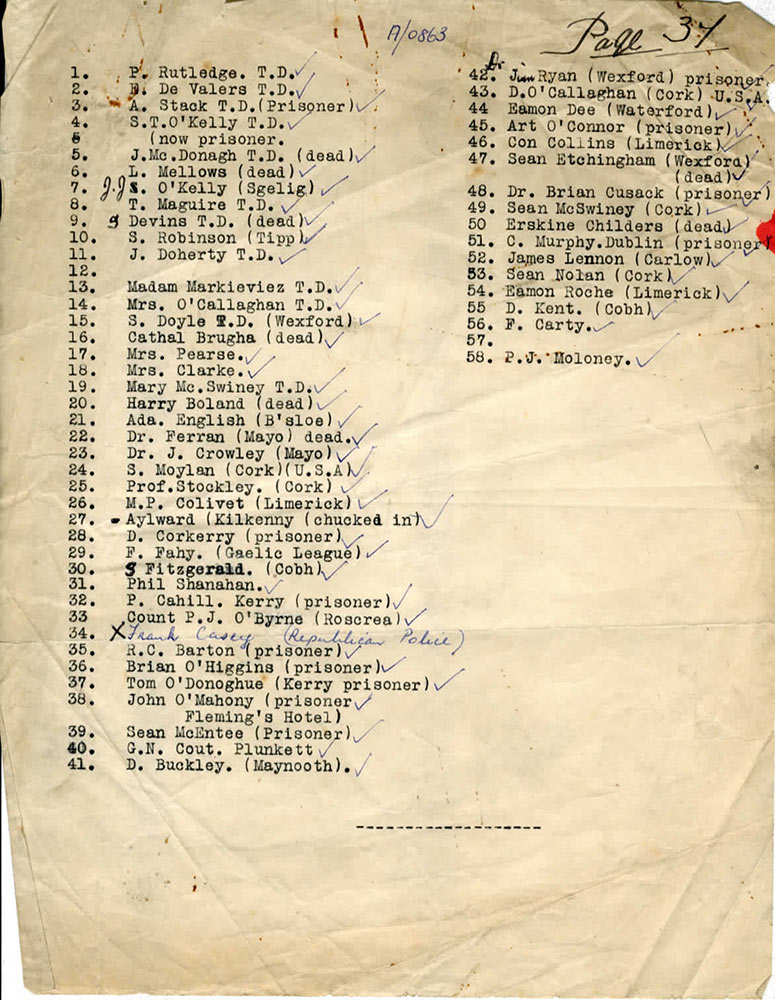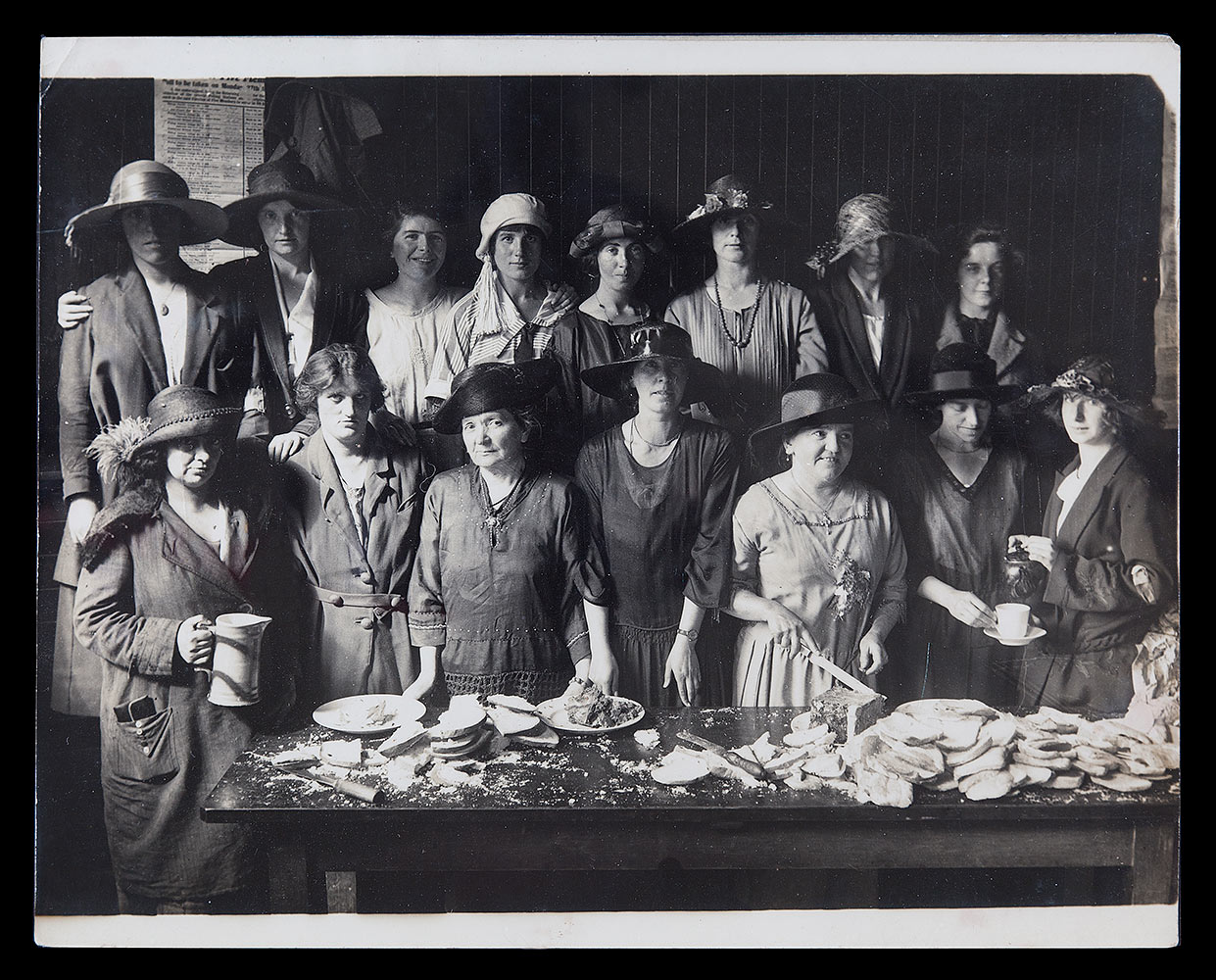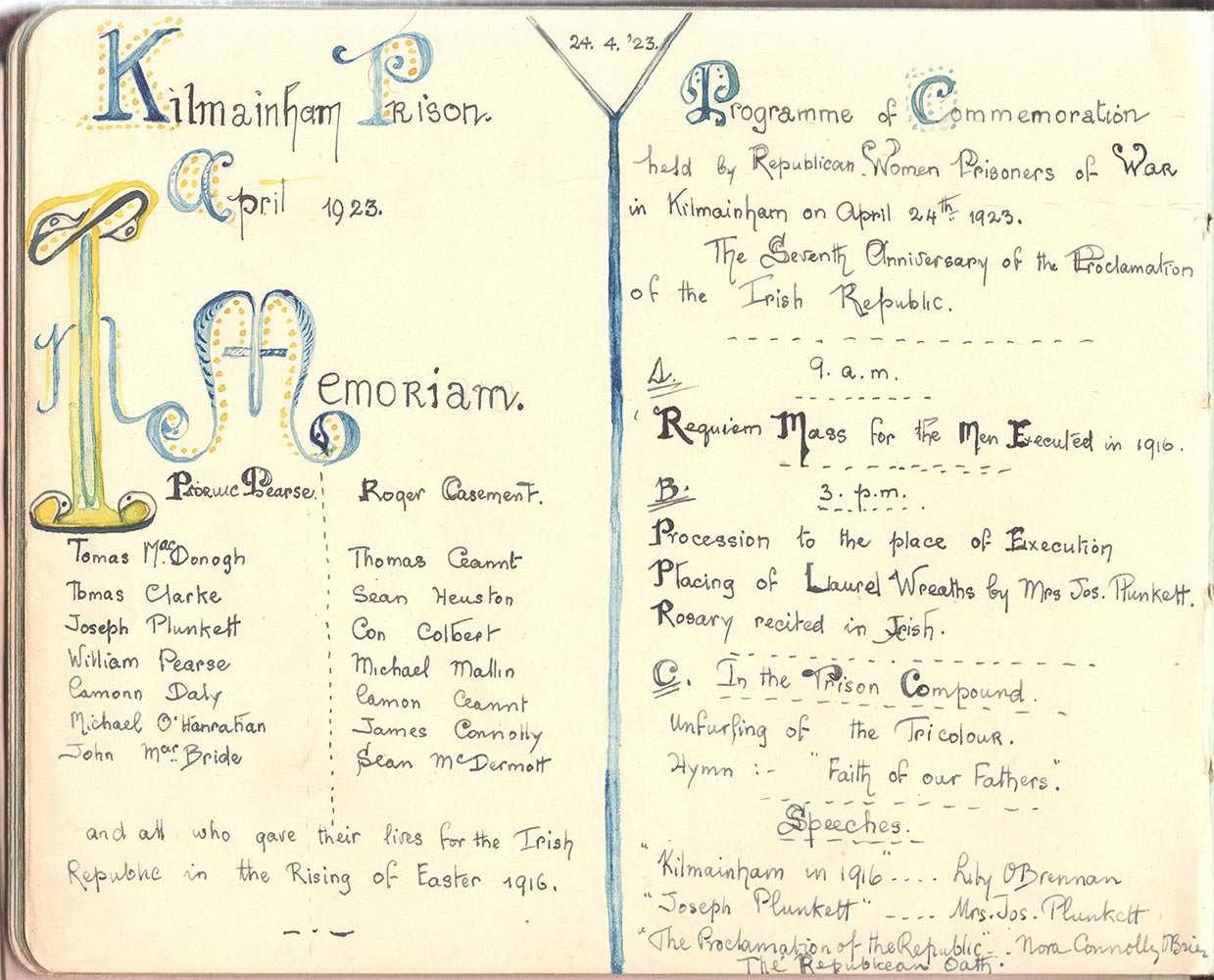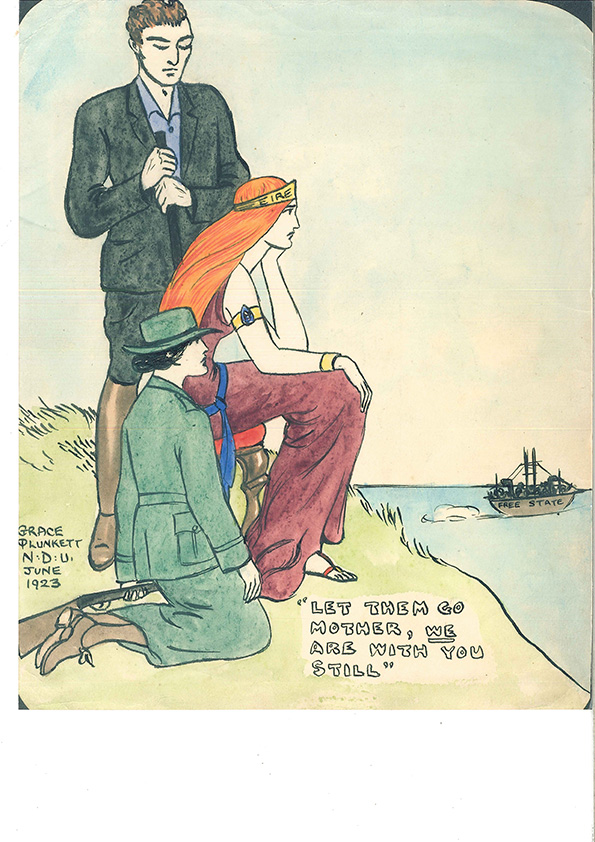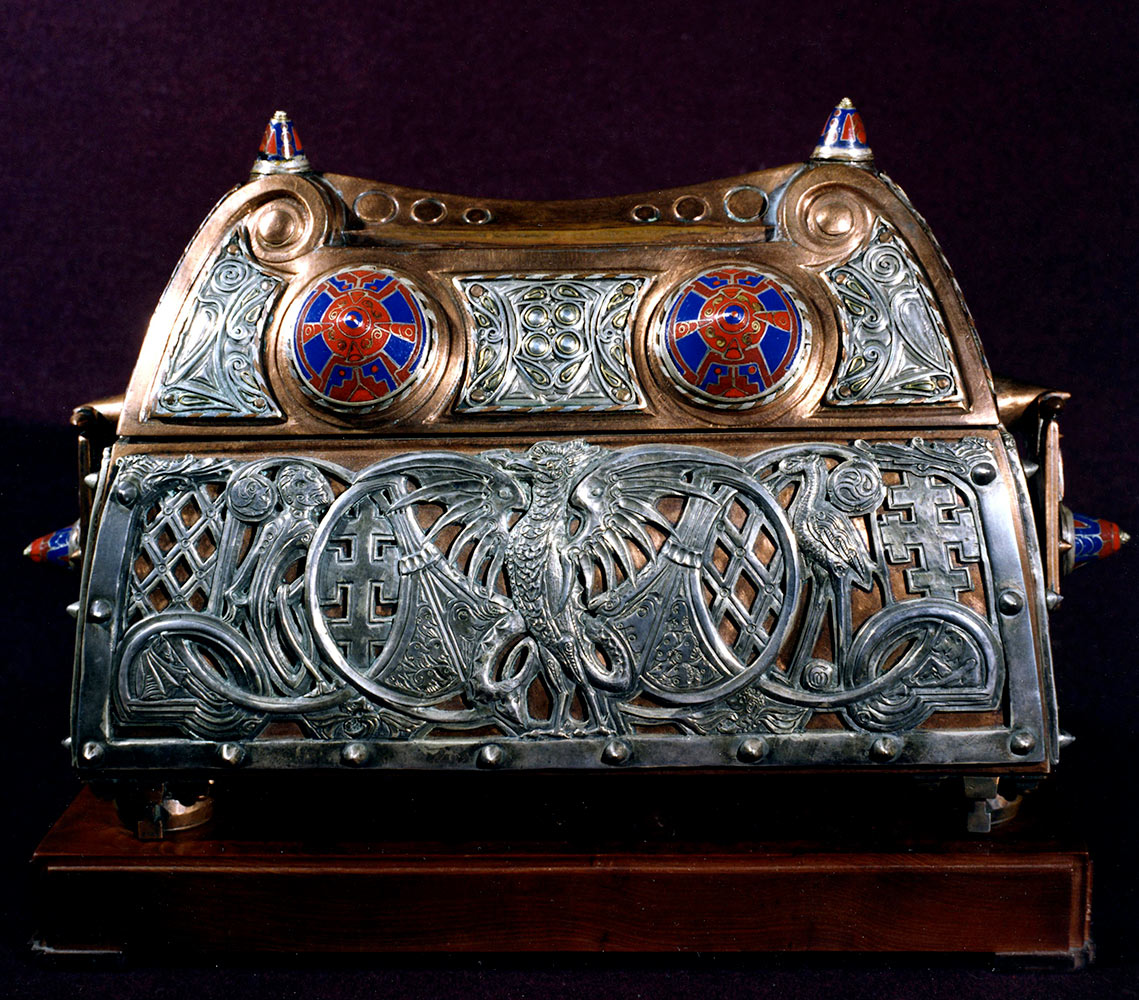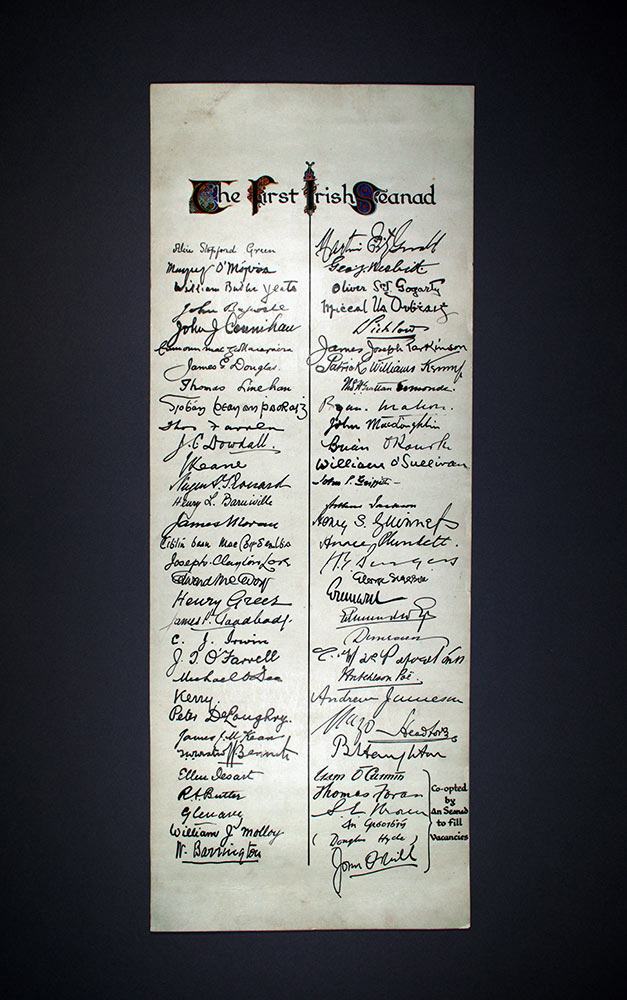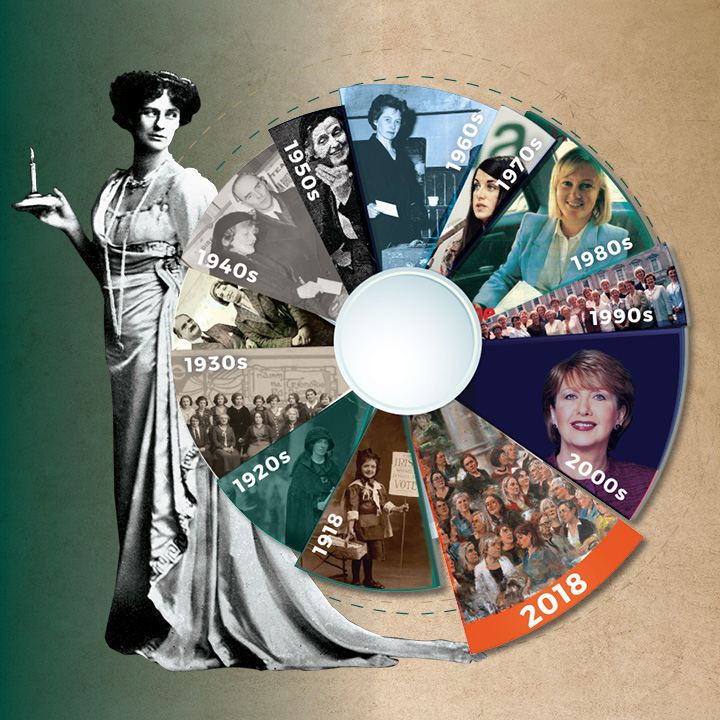Women Participants, 1916 Rising
Ely O’Carroll’s House, Peter’s Place, Dublin.
(Máire Comeford’s key taken from the Irish Press, 9 April 1966)
Courtesy of Kilmainham Gaol Museum KMGLM.18PC-1B53-02
Front Row l-r: Madeline ffrench-Mullen, Brigid Foley, Dr Kathleen Lynn
2nd Row l-r: Rose McNamara, Kathleen Kenny, Mary Joe Walsh, Mrs Mary Lawless, Jenny Milner, Eileen Walsh, K. Kennedy, May Byrne, [unidentified], Annie Cooney
3rd Row L-R: May Moore, Kathleen Lane, Sarah Kealy, Gertie Colley, Mary O’Hanrahan, Amee Wisley, Bridget Murtagh, Cilla Quigley, Julia Grenan, Statia Twomey, B. Walsh.
4th Row L-R: Nora Thornton, Rose Mulally, Sheila O’Hanlon, Maria Quigley, Margaret O’Flaherty, Josie McGowan, Eileen Cooney, Josie O’Keeffe.
5th Row L-R:Lucy Smith, Nora Foley, Pauline Morecambe, Dolly Sullivan, M.Elliott, Mary Sullivan, Tilley Simpson, Mrs Catherine Treston
6th Row L-R: M.Kely, Brigid Brady, Jeannie Shanahan, Mrs Kathleen Barrett, Rosie Hackett, Margaret Ryan, Brigid Davis, Chris Caffrey, Patricia Hoey
Standing Left: A.Tobin, Aoife Taafe, Marcella Cosgrove, Mrs Kathleen Murphy, Bridget Foley [?Lucy Agnes Smyth]
Standing Right: Martha Kelly, Márie Nic Shuibhlaigh, Lily O’Brennan, Elizabeth O’Farrell, Nora O’Daly, Mary Murray.
Participants 1916 Commemorative Badge
Courtesy of Kilmainham Gaol Museum [KMGLM.2019.0111]
